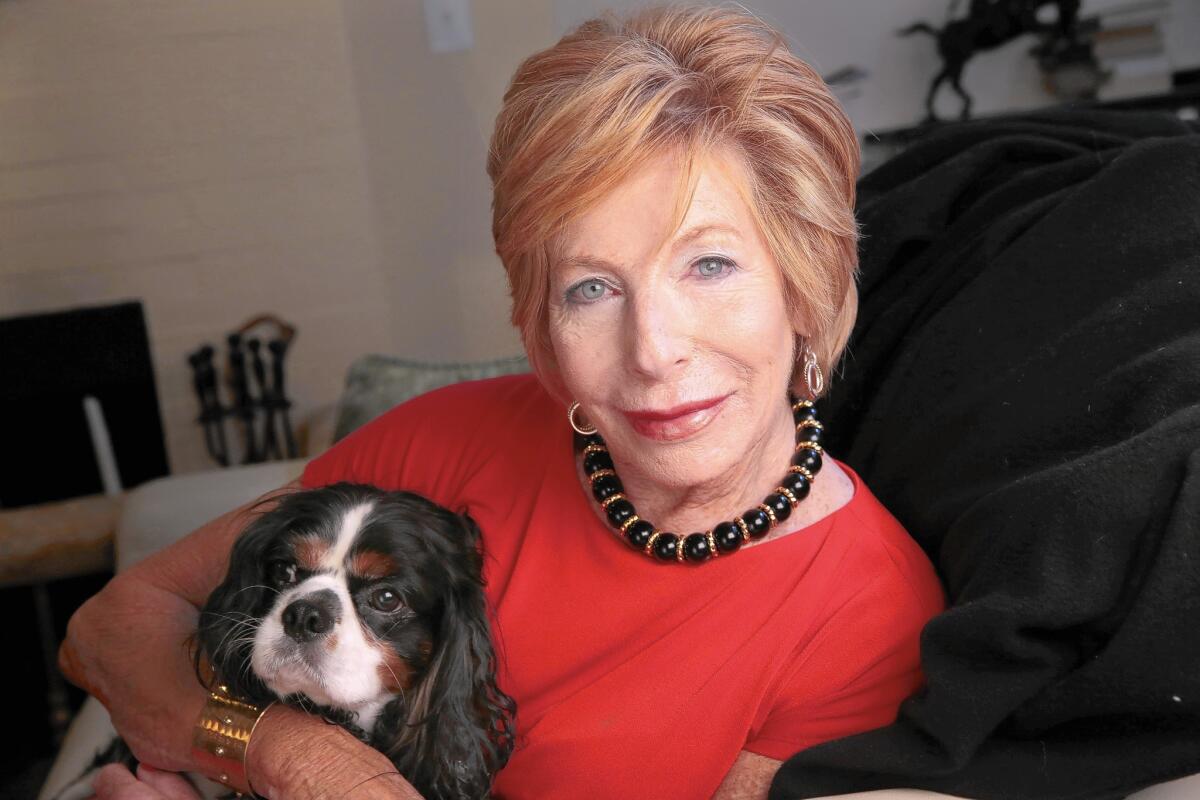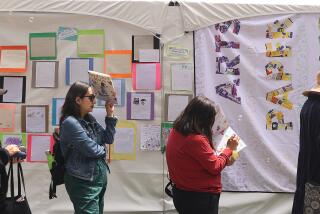Literary journalist Gail Sheehy on her ‘Daring’ career

In her new memoir, “Daring: My Passages,” literary journalist Gail Sheehy describes her struggles and triumphs as she made an imprint on the world of journalism starting out in the 1960s when it was a “man’s world.” At the heart of the memoir is the deep love she shared with the late Clay Felker, her mentor and editor at New York magazine.
Sheehy has written 16 books, including the groundbreaking nonfiction book “Passages,” which sat on the New York Times bestseller list for three years and was named by the Library of Congress as one of the 10 most-influential books of our time. Sheehy is one of the original contributors to New York magazine and has been a contributing editor to Vanity Fair since 1984. Sheehy will be reading and signing her memoir at New Roads School at 8 p.m. Wednesday.
Through your writing you have encouraged women to take risks and dare. Why do you think this tendency to hold back still exists so strongly among women?
I think we still have the hangover of being second-class citizens. We always want to prove that we can not only do it right but we can do it better. And when you have to do it better, you may just pull away from trying to do it at all because what if you fail?
Early in your memoir, you reveal one of the most basic requirements to becoming a successful writer: stomaching the rollercoaster from failure to success and back to failure. How did you come to a place of accepting the possibility for failure?
One of the things that I found out is that it’s better to fail early and often so that you find out you don’t die from it. I was devastated when I got the review for my first book. The book came out a couple years before the women’s movement broke through and people were putting it down, asking, “Why does the woman in this book need to get a divorce? Why can’t she just shut up and be happy?”
I had to get a divorce because I couldn’t live with an unfaithful husband. I don’t have any regrets for leaving that marriage because otherwise I would have been resentful and probably turned into an alcoholic, like my resentful mother.
But it led to 15 years of being a single mom and always struggling for money and independence.
It was my very good fortune to find a mentor, Clay Felker, who started my career at the New York magazine as a freelance writer when I had to quit my job at the Herald Tribune to stay home with my young daughter.
When Clay asked me to cover Bobby Kennedy’s presidential campaign in California, I said, “How can I? I’ve never written a political story!” He gave me the best advice: “The way you make your name as a journalist is not to write a lot of little stories. No matter how good they are, you’re not going to start a new conversation. What you have to do is tackle big stories and find the why.” I followed that ever after.
Do you think we are at a point where women can have it all?
I have a very strong view about this. I do think women can have it all — but not all women. If you take daring steps and are smart about it, you can probably have it all. But you might have to wait a while.
It takes so long to prepare to be a professional in today’s world, to get the education you need to operate in an information society and to find a partner who is worthy of mutual respect and support. I have a strong feeling that a huge number of women under 30, who have children but no partner or male figure at home, are on a very dangerous track.
I’m very old-fashioned about thinking that one should wait until one has a partner that one can count on. I did not give my daughter the kind of childhood anybody would want. The vision of the divided loyalty between a mother and father who don’t live together and don’t share in decisions is a great depravation for children. In my case, I didn’t have it all until I was in my late 40s.
You write that temporarily breaking off your relationship with Clay was “the most daring decision” of your life. Why was it a decision you knew you had to make?
I loved him. I didn’t want to lose him. But I also didn’t want to lose the opportunity to write [“Passages”], what I felt was a book I couldn’t give up. It seemed like an either-or choice. I couldn’t be a mother for my then-9-year-old child, continue to write for Clay’s magazine and research a book that had to begin with reading all of Freud.
And Clay was Mr. New York. He rightfully had chosen a path where he had to be out every night. And he wanted me to be with him. There wasn’t enough of me to go around. We did see each other during those three years of separation. One time he came to a reading I was doing, just to see me and say hello. That was very touching.
The outcome showed us that the magnetism between us was so strong that we couldn’t even survive a temporary separation. And when we did marry, it was solid right from the beginning.
How did becoming Clay’s caretaker toward the end of his life affect you?
When we moved to California during his early cancer, we started one of the best decades of our lives. He was doing something he loved, shaping journalists at the University of Berkeley J-school. And I wrote five books during that time.
When the cancer really overtook him, those were tough years. I slipped into overusing alcohol and had to find my way back from that dead end. But in the process, Clay and I became so much more open, tender and loving to each other. That was a depth of the relationship that we might not have had, had it not been for sharing the fight for life and then the fight to prolong joy right up until the last night.
Is there one assignment you hold more closely to your heart because it challenged you or changed you in an unexpected way?
Interviewing Hillary Clinton was eye-opening. I never met a woman who was so brilliant and tough but had a lighthearted side that few people ever saw because she was so guarded. And what I really learned was how deep denial can go. Hillary spent years not knowing what she knew — and that was a revelation to me. I had had an unfaithful husband and wasn’t able to compartmentalize it and live with it.
In the end, I think she did the only thing that Hillary Clinton with her aspirations could do, which was to stick with a partnership that had a larger agenda. And a deep love, all along.
As I would write articles over 10 years for Vanity Fair about the Clintons, people would say, “Well, she’s going to leave him when” fill in the blank: “when they leave the White House,” “when she gets into the Senate,” “when she moves out of Washington.” But I knew she never would. And only once did he ask for a divorce and she said no.
More to Read
Sign up for our Book Club newsletter
Get the latest news, events and more from the Los Angeles Times Book Club, and help us get L.A. reading and talking.
You may occasionally receive promotional content from the Los Angeles Times.






